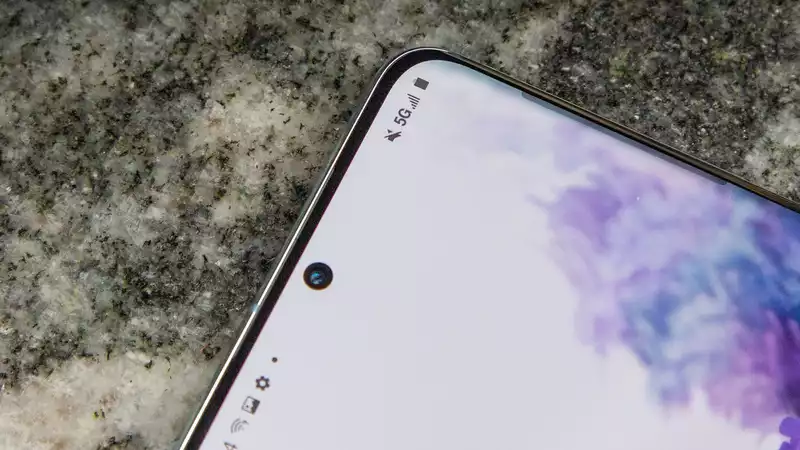The arrival of Samsung's Galaxy S20 lineup in stores is a big deal for 5G networks, as three new models offer 5G connectivity for the first time, and it's not just a feature reserved for expensive niche versions of phones For most people who pick up the new Galaxy S20, this will be their first encounter with the newly emerging wireless network standard, which promises higher speeds and lower latency
And if you boot up your Galaxy S20, Galaxy S20 Plus, or Galaxy S20 Ultra and expect to be immediately transported to a world of 1 Gbps download speeds, you may be disappointed
To be fair, there are faster 5G speeds available for your new Galaxy phone, offering faster downloads and faster performance How fast, however, depends on many factors, including where you are located and which cellular network you are using
For owners of the new Galaxy S20, here is a brief overview of what 5G is and the performance you can expect from your new phone both now and in the future
Simply put, all of Samsung's new flagships, from the $999 S20 to the $1,399 S20 Ultra, are 5G-enabled phones Samsung's new flagship phones use the Snapdragon 865 chipset and have X55 modems that can connect to all 5G networks,
as AT&T has just opened its faster 5G Plus service to all (The Galaxy S20 Plus and Galaxy S20 Ultra can benefit from AT&T;'s faster 5G Plus speeds not available on the Galaxy S20
Samsung plans to add compatibility with Verizon's millimeter wave-based network (more on how this differs from other 5G networks later), and the Galaxy S20 is expected to arrive in Big Red during Q2 For now, both the Galaxy S20 Plus and Galaxy S20 Ultra work fine on Verizon's 5G network
As noted above, different carriers are launching early 5G networks using different technologies Verizon is fully committed to millimeter wave and has been the center of its 5G efforts to date; AT&T and T-Mobile have deployed some millimeter wave-based 5G coverage; AT&T's 5G Plus network is available in 35 cities and is currently open to all customers, and and T-Mobile has millimeter wave nodes in half a dozen cities Sprint uses mid-band frequency bands for its 5G network
So what does that mean? Millimeter wave is much faster and can reach the 1 Gbps speeds that 5G advocates have been touting Millimeter wave is best used in densely populated areas, but because of the difficulty of avoiding physical obstructions, we rarely see high-speed millimeter wave networks indoors (with exceptions like the arenas where Verizon is deploying 5G towers indoors)
5G networks that use low-band spectrum can cover larger areas and thus reach more people Low-band 5G signals can reach indoors However, transmission speeds will not be as fast as millimeter wave, and will only be a slight improvement over the 4G transmission speeds currently in use In fact, in a recent study of 5G network performance, RootMetrics found that Verizon's LTE speeds are faster than the median speed of T-Mobile's 5G network and comparable to AT&T's 5G median speed
This means that the kind of 5G speeds you get depends largely on which carrier offers wireless service My colleague Mark Spoonauer had a very difficult time getting decent 5G speeds with his Galaxy S20 Ultra on T-Mobile's 5G network Mark was also unable to download shows from Netflix when he connected his S20 Ultra to T-Mobile's 5G
However, when he replaced his T-Mobile SIM card with a Verizon SIM card, Mark was able to record speeds of 14 Gbps and even download a TV show in seconds Of course, he had to stand outside to do that
It is worth noting that when I tested the OnePlus 7T Pro 5G McLaren on T-Mobile's 5G network in Maui, I had a much better experience (not just because I tested in Hawaii) 1Gbps speeds were not achieved, but T-Mobile's 5G network was definitely faster than LTE; with T-Mobile's 5G, I was able to download 35 hours of "The Irishman" in under 3 minutes Then again, that's another cell phone on a completely different side of the country Which brings up another important point
5G is more available than ever before, but not yet everywhere And different carriers are launching networks in different cities
Verizon may have the fastest 5G speeds of any carrier at this point, but as of this writing, it is only found in 34 cities (AT&T's low-band 5G network is 80 cities in size, while T-Mobile boasts a nationwide network that reaches 5,000 cities As for Sprint, it launched its network in nine cities last year, but hasn't expanded much further while it waits for its merger with T-Mobile to be completed
Which carriers offer 5G in your area? Each of the Big 4 carriers lists where they offer 5G service on their respective websites:
Bottom line: if you live in an area where no carrier offers 5G yet, you will not see any boost from 5G at all
The good news is that wireless carriers are not standing still in their 5G expansion Carriers are looking to add coverage to more cities and improve coverage in areas they have already reached
Therefore, 5G networks initially built with one technology will eventually incorporate other technologies The real 5G is a combination of sub-6GHz and millimeter wave," said Qualcomm President Cristiano Amon at the company's Technology Summit this past December Wireless carriers will begin to combine these technologies for 5G coverage The Galaxy S20 Plus and S20 Ultra also have the advantage of being able to support all technologies because of their X55 modems
That may be small comfort now that 5G coverage is still limited But it is a positive step if it means that your phone's 5G performance will improve over time, and more people are holding onto their smartphones for more than two years










Comments